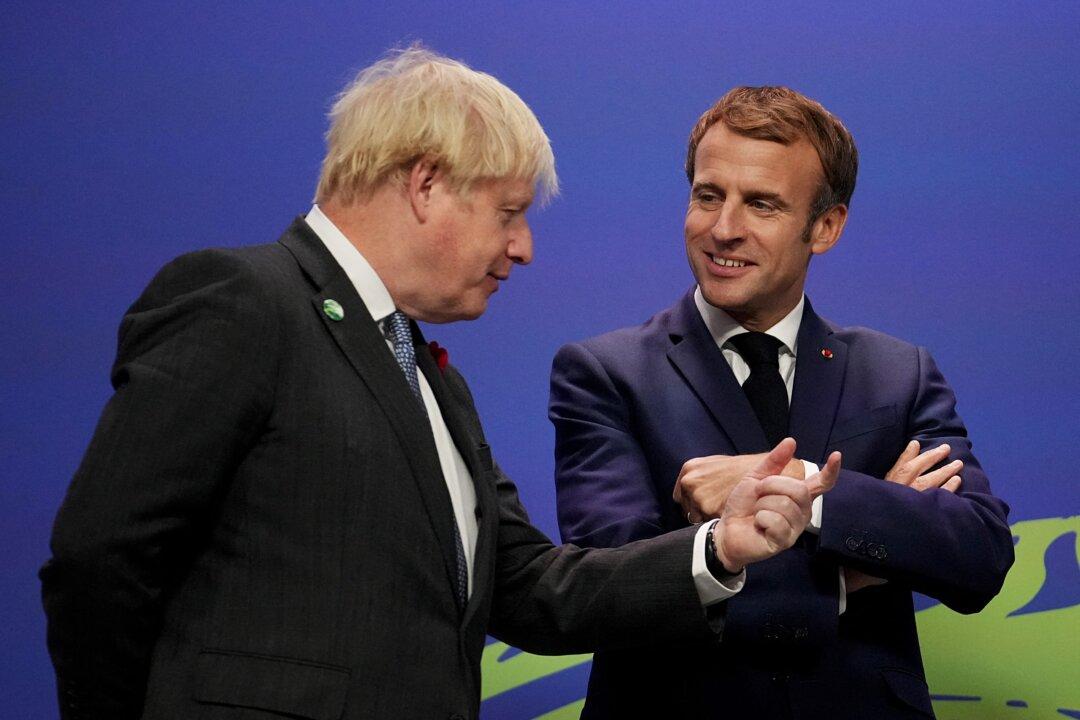British Prime Minister Boris Johnson has congratulated Emmanuel Macron on his reelection and said he looks forward to working with the French president on issues such as the war in Ukraine.
Final results of the runoff election on April 24 showed Macron beat his right-wing opponent Marine Le Pen with 58.54 percent of the vote, a higher margin of victory than many earlier surveys had predicted but well below the 66.1 percent he scored against the same opponent in their first runoff in 2017.





